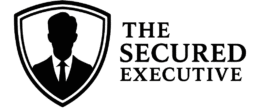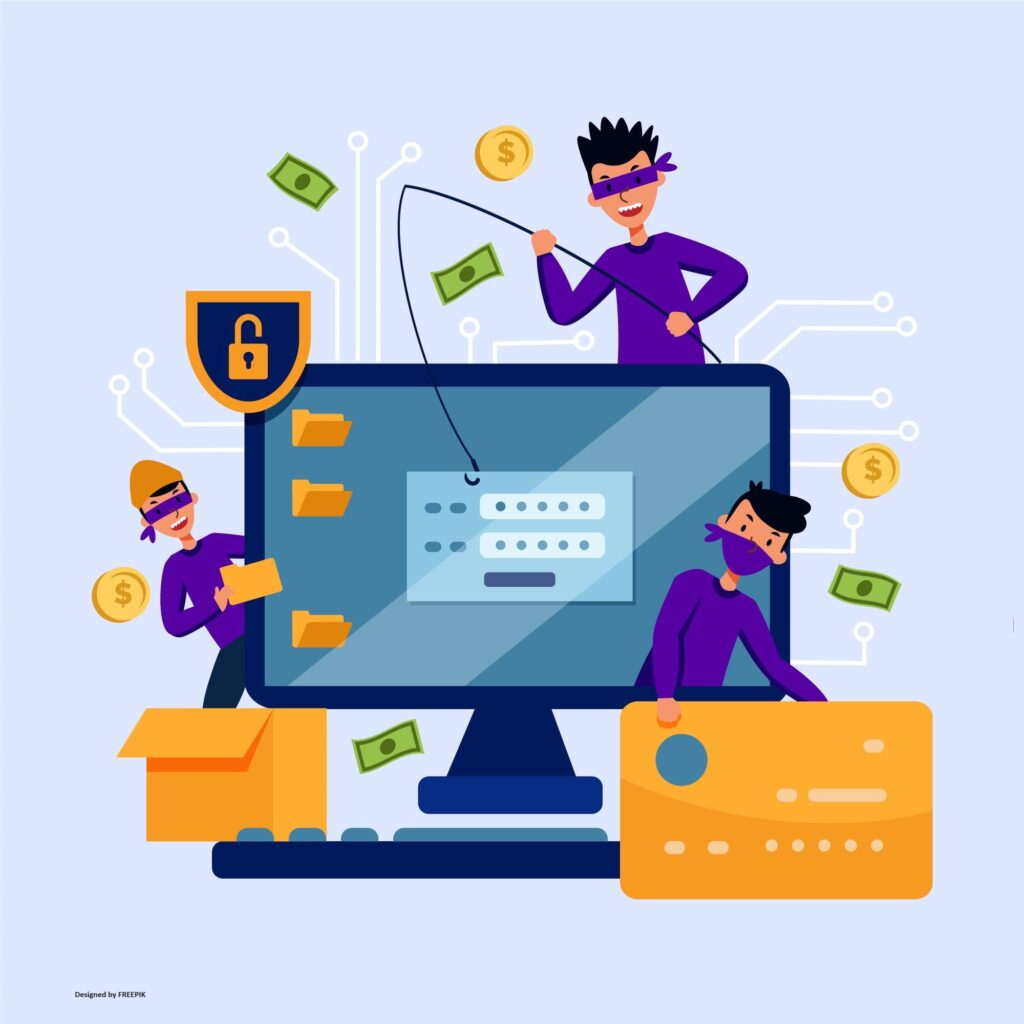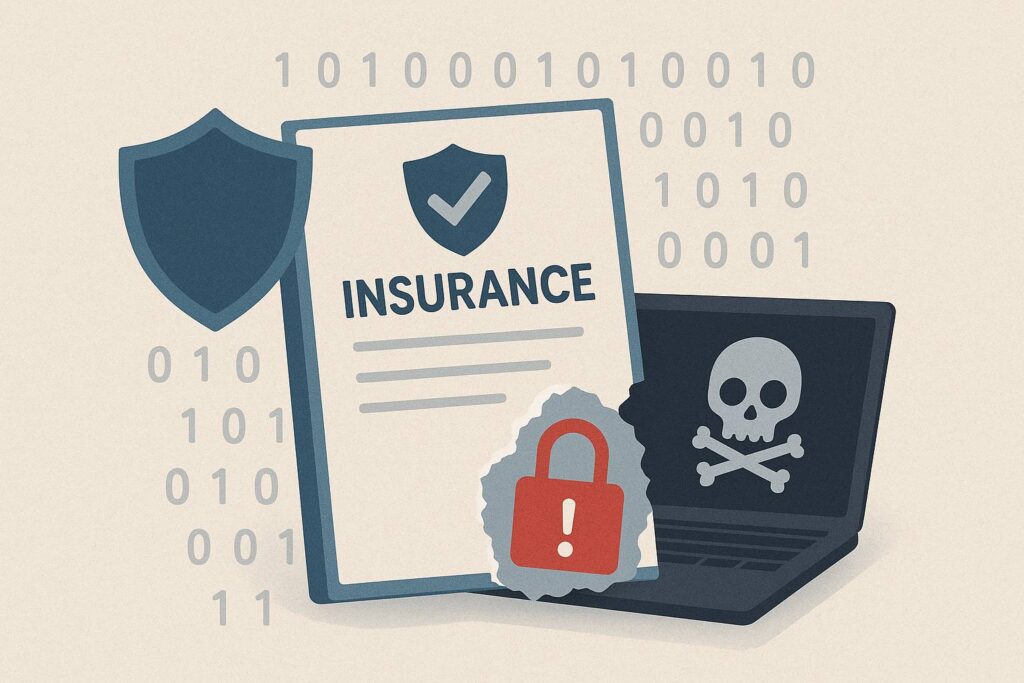We sometimes take for granted, or we simply have little idea, of how much our personal information is online. For high-net-worth individuals (HNWIs), executives, and public figures, having a considerable amount of personal information online goes way beyond simply a privacy concern, for these individuals, it’s a direct security risk. A visible digital footprint, or data trail, as it is sometimes referred to, can expose you to:
- Identity theft – Where cybercriminals can steal your personal data to access very personal details about yourself, such as your bank accounts, real estate records, and investments.
- Doxxing and harassment – This is where your private home address, phone number, and even family details can be leaked.
- Financial fraud – This is where wealthy individuals, who are always prime targets, are targeted for phishing scams, financial fraud, and extortion.
So, what can you do to erase or reduce your digital footprint, secure your communications, and ensure your private life stays off the internet as best as possible? I’ll do my best to provide a step-by-step guide to help you regain control of your online privacy, from removing personal data from the web to implementing advanced cybersecurity measures to keep your private lives off the Internet. So let’s get to it!
Jump To:
Toggle
The Online Privacy Risks for the Wealthy
There is always a risk for basically anyone’s data to be compromised, however, unlike the average internet user, wealthy individuals, executives, and other high profile people, will always be attractive targets for hackers, scammers, and even competitors. Here’s why:
Cybercriminals Target Financial Assets
It goes without saying that the more wealth someone has, or is perceived to have, makes them a greater target for an attack. Cybercriminals use a variety of attack methods, such as phishing, hacking, and social engineering, to get their hands on the financial details of these individuals.
Data Brokers can Track and Sell Your Information
Companies like Acxiom, Experian & Equifax, collect, store, and sell personal data, including addresses, income estimates, and business connections.
Doxxing & Stalking are Real Threats
You may not have heard of doxxing, but it’s a term that refers to the sharing of someone’s personal information without their content. High-profile individuals face increased risk of doxxing and stalking.
Real-World Examples of Data Leaks Affecting Wealthy Individuals
Let’s take a look at a few attacks involving wealthy individuals and Executives.
The 2021 Pegasus Spyware Attack
Pegasus is a spyware developed by the Israeli cyber intelligence firm known as the NSO Group. Pegasus is a spyware that is capable of zero click surveillance of smartphones. Meaning that no user interaction is necessary; no key presses or mouse clicks. Pegasus was used to hack the phones of many high-profile individuals, including business leaders, journalists, and government officials. The spyware could remotely activate a phone’s camera and microphone, access emails, and track location—all without the victim clicking on anything.
Who was affected?
- Jeff Bezos – Pegasus was used to spy on Jeff Bezos, the founder of Amazon, following a message exchange between him and Saudi Crown Prince Mohammed bin Salman. Pegasus took advantage of, at the time, unknown flaws in the instant messenger WhatsApp’s.
- Saudi Arabia used Pegasus to spy on Jamal Khashoggi, who was killed in Turkey in October 2018.
- Political leaders & executives worldwide – Data was leaked, stolen, and used against them.
- Saudi Arabia used Pegasus software to target Saudi satirist Ghanem Almasarir. Citizen Lab researchers verified in 2018 that a Saudi Arabian-linked network had targeted and hacked Almasarir’s phone.
Some reports suggest that Pegasus was used in over 45 countries, and impacted tens of thousands of people. Pegasus is a particular scary spyware, because rather than being a single exploit, Pegasus is actually a collection of exploits that take use of many system vulnerabilities. The Photos app, Apple Music, iMessage, and clicking on links are all potential infection vectors. Pegasus makes use of zero-click vulnerabilities, which allow them to execute in the background without requiring the victim to do anything.
Among the many apps that Pegasus can access after installation are iMessage, Gmail, Viber, Facebook, WhatsApp, Telegram, and Skype, among many others. It has also been reported that Pegasus can execute arbitrary code, extract contacts, call logs, messages, photos, web browsing history, and settings.
Key point: Even encrypted platforms like WhatsApp can be compromised. Wealthy individuals must use vetted, more secure communication methods like Signal, Wickr, or Silent Circle.
The 2022 Crypto Billionaire Hacks & Mysterious Deaths
Several high-net-worth cryptocurrency investors and CEOs were hacked, robbed, and even mysteriously found dead within months of each other.
Notable Cases:
- Gerald Cotten (CEO of QuadrigaCX) – Allegedly died suddenly, taking the passwords to over $250 million in customer funds with him.
- Nikolai Mushegian (Crypto Developer, MakerDAO) – Died in Puerto Rico after claiming on Twitter that intelligence agencies were tracking him.
- Tiantian Kullander (Co-Founder of Amber Group) – Passed away in his sleep under mysterious circumstances at 30 years old.
Key point: Financial executives and crypto investors are prime targets for cyberattacks, financial theft, and even potential assassination attempts. Advanced privacy measures, anonymous banking, and secure offshore storage solutions are an absolute necessity.

How Executives Can Protect Their Online Privacy
Executives, CEOs, and high-net-worth individuals certainly have a lot more to lose than the average person, and face unique privacy risks due to their business dealings, political ties, and financial status. Here’s how they can shield themselves from cyber threats.
Strengthen Your Digital Security
- Use Multi-Layered Encryption – All emails, phone calls, and messages should be encrypted end-to-end with a reputable encryption app.
- Employ Private VPNs & Dedicated Secure Networks – Use custom-built VPN servers rather than consumer-grade services.
- Air-Gap Critical Devices – Have one device that never connects to the internet to store sensitive business data.
- Disable Bluetooth & Wi-Fi Auto-Connect – Prevents hackers from injecting malware into devices wirelessly.
Remove Personal & Corporate Data from Public Exposure
You are the first line of defense when it comes to protecting yourself online! In most cases, the best course of action is to remove or greatly reduce the quantity and nature of the material you publish online. If something isn’t accessible online, then there’s no need to worry about losing it, or it falling into the wrong hands. Here are a few things you can do:
- Separate Personal & Business Identities – Don’t use the same account for multiple purposes. Use different names and aliases for professional and personal interactions.
- Limit Corporate Registration Transparency – Use offshore LLCs or trusts to obscure ownership of assets. Just make sure you report your taxes to the relevant authorities.
- Scrub Employee Data Leaks – Provide employees with just the necessary information for them to carry out their duties, and no more. Ensure employees’ information isn’t publicly available to prevent phishing attacks targeting them.
Implement Strict Social Media & Online Presence Controls
There are those that post everything about themselves online, then they are people are a bit more reserved. One thing is for certain, as someone who potentially has a lot to lose, it’s always better to err on the side of caution. Here are a few tips to consider:
- Get a Professional Social Media Manager – Get one that you trust, and they can curate what is public and remove harmful content before it spreads.
- Use Alias Accounts for Personal Networking – Never register personal social media under your real name.
- Disable Geotagging & Facial Recognition – This prevents others from tracking your location or automatically tagging you in photos.
Key point: Cybercriminals go to great lengths to get seemingly innocuous pieces of information, like small digital breadcrumbs, that they use to build effective attack strategies. Executives must therefore severely limit their digital presence and deploy advanced cybersecurity measures.
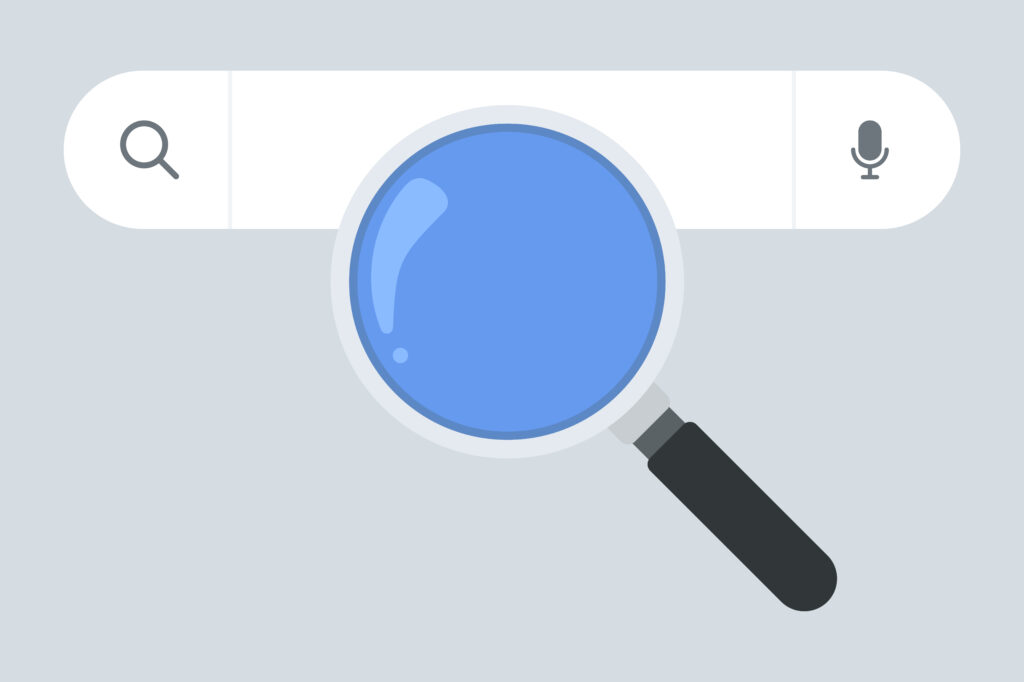
Best Ways to Remove Personal Information from the Internet
Removing your personal information requires a multistep approach. Even after you delete accounts, data brokers and search engines continue to store your details unless you actively remove them.
Step 1: Remove Data from Search Engines
- Use Google’s Removal Tool – If your sensitive information appears in the search results, you can use Google’s Outdated Content Removal Tool to request removal of your personal information.
- Manually Request Data Removal – You can contact the web admins of websites hosting your private information and request, or demand, deletion.
- Send Legal Notices – If websites are hesitant to remove your data, you can legally demand the removal of your data from companies and public databases under GDPR (General Data Protection Regulation) or CCPA (California Consumer Privacy Act) laws.
Step 2: Remove Personal Data from Data Brokers
A Data Broker can be an individual or organization that focuses on collecting personal information about people, such as their income, ethnicity, political views, or geolocation data.
They gather this information primarily from public records but occasionally from private sources, and then sell or license that information to third parties for a range of purposes. Data brokers can sell your information to advertisers, fraudsters, and even cybercriminals. It’s a good practice to opt out of these services. You may do this manually or use an automated removal service.
Top Data Broker Removal Services
DeleteMe – Removes personal data from major data brokers.
OneRep – Monitors hundreds of people-search sites for your data.
Kanary – Continuously scans for new instances of your personal information and removes them.
Step 3: Delete Old Social Media & Online Accounts
- Use JustDeleteme – This app provides direct links to delete accounts from over 500+ online platforms, a quick and easy method.
- Deactivate & Delete Old Profiles – Any social media accounts, forums, or services you no longer use should be permanently erased.
- Use Fake Information on Future Accounts – If you must create new accounts, use aliases, burner emails, and virtual phone numbers.
Step 4: Suppress Negative Search Results & Leaked Data
- Hire a Reputation Management Firm – Companies like Reputation Defender or BrandYourself specialize in removing negative content from search engines.
- Push Down Negative Results – If damaging information is ranking high in Google, publish fresh content to push it lower.
- Monitor Your Digital Footprint – Use Google Alerts to track new mentions of your name, business, or assets.
Key Points: Simply deleting accounts isn’t enough. Wealthy individuals must use legal tactics, data suppression, and professional services to ensure their information remains permanently off the internet. If this seems a bit overwhelming, you can always hire reputable firms that specialize in erasing harmful search results and strengthen privacy.
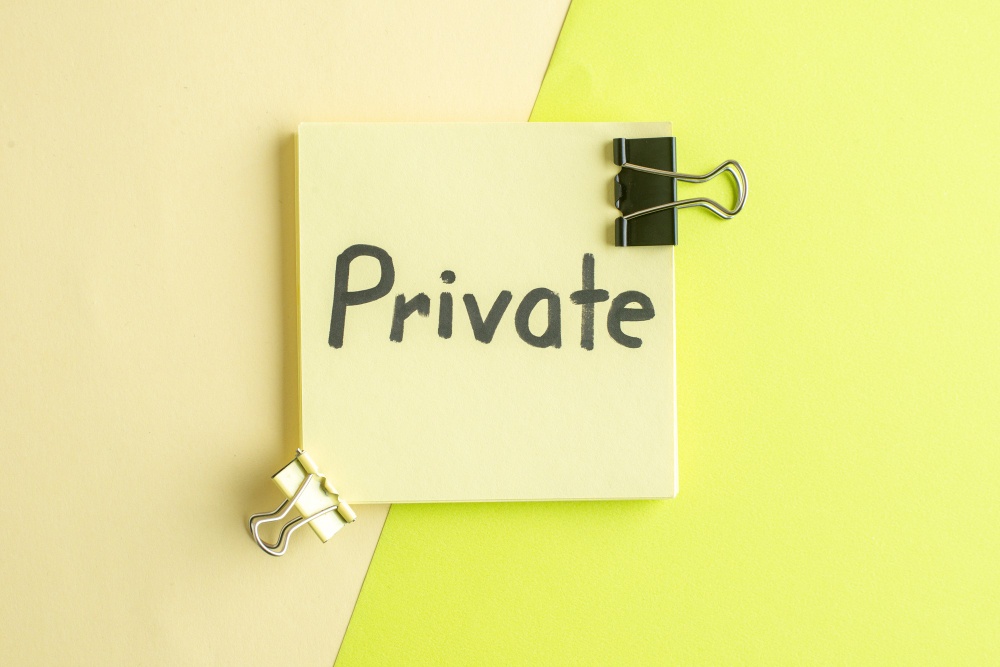
How to Stay Private Online as a High-Net-Worth Individual
So obviously, you can’t completely isolate yourself from being online, therefore protecting your online presence requires strategic privacy measures and the right tools. Let’s take a look at a few.
1. Securing Your Online Communication
Use Encrypted Messaging Apps
Avoid using the ubiquitous WhatsApp, which by the way has security flaws that Pegasus took advantage off. In fact, it’s recommended to avoid using WhatsApp and SMS altogether for sensitive conversations. Switch to Signal, Wickr, or Threema for secure chats. These encryptions app provide much greater security, and are just as easy to use as WhatsApp.
Secure Your Email
Instead of using Gmail or Hotmail, switch to ProtonMail or Tutanota, which encrypts emails end-to-end. ProtonMail also provides third party blockers, encrypted contacts, a free VPN, and the benefits of strong Swiss Privacy Laws.
Avoiding Online Tracking
Use browser in private mode or incognito mode. While Google Chrome or Microsoft Edge does have strong security features, you can also consider using Brave, an open source browser that has been tested independently for vulnerabilities. Firefox, which is also open source, with privacy settings enabled, is also a great choice.
Block Trackers
Install Privacy Badger, Ghostery, or uBlock Origin to stop hidden tracking scripts.
Use Private Search Engines
If you value privacy, DuckDuckGo, Startpage, or Qwant are much better options to Google, as they don’t track your searches.
Limit Location Tracking
Unless it’s absolutely necessary, disable location tracking on your phone, apps, and web browsers. If you must enable it for a particular purpose, as soon as you’re finished, it should be immediately disabled.
2. Best Privacy Tools for Wealthy Individuals
VPNs
Virtual Private Networks work by creating a virtual tunnel that encrypts internet traffic and hides your IP address. Great options are ProtonVPN, MullvadVPN. You may also consider ExpressVPN and NordVPN.
Secure Cloud Storage
Use Tresorit, ProtonDrive, or Nextcloud instead of Google Drive or Microsoft’s One Drive.
Password Managers
Remembering all your passwords can become very difficult as time goes one. Use a password manager to store complex, unique passwords. Recommended options are 1Password, Bitwarden, or NordPass.
How Billionaires and Executives Protect Their Personal Data
For CEOs, business leaders, and high-net-worth individuals, the stakes of a privacy breach are even higher. Corporate espionage, insider threats, and reputation damage can cost millions. Here’s how to secure your personal and professional digital identity.
Use Private Trusts & LLCs
Many executives own assets through trusts to prevent public records from exposing their holdings.
Employ Cybersecurity Teams
Some ultra-high-net-worth individuals hire full-time security consultants to monitor privacy risks. If you are capable of hiring full-time cybersecurity experts, more power to you!
Limit Social Media Exposure
Billionaires, like Elon Musk and Jeff Bezos, may post about their business ventures, or even their political positions, but rarely, if at all, do they share personal details online. By doing this, they limit their exposure and hence, their vulnerability.
Use Multiple Business Identities
Many executives register businesses under pseudonyms or holding companies to reduce online exposure.
Example: According to the Wall Street Journal, after multiple doxxing incidents, Mark Zuckerberg spent over $23 million in 2021 on personal security measures, including digital footprint reduction.
Using Burner Identities for Non-Essential Signups
For online shopping, networking, or subscriptions, never use your real identity. Instead:
Create email aliases using Addy.io or SimpleLogin.
Use virtual phone numbers for signups to avoid spam calls.
Never link personal emails to financial or business accounts.
Private Browsing Tips
Use the Brave browser – Built-in ad & tracker blocker.
Enable DNS over HTTPS (DoH) – Prevents ISPs from tracking your web activity.
Avoid social logins (e.g., “Sign in with Google/Facebook”) – These logins track your browsing behavior.

How to Avoid Online Tracking
- Use a Faraday Bag – This is a simple one, it’s a type of bag that blocks GPS, Bluetooth, and wireless tracking signals on your mobile devices.
- Turn Off Location Services – This prevents apps and websites from tracking your movements.
- Change MAC Addresses – Randomizes your device identifier every time you connect to a network, preventing Wi-Fi tracking.
- Regular Cybersecurity Audits for HNWIs
- It’s a good idea to conduct digital security reviews every six months. The reviews should include:
- Assessing your exposure to data breaches – Use the website; HaveIBeenPwned.com to check if your credentials have been leaked, for example your email address or phone number.
Updating device firmware – Outdated software is a hacker’s gateway.
Reviewing home network security – Use firewalls, strong passwords, and VPNs for home offices. - Pro Tip: If you suspect someone is tracking you, hire a counter-surveillance expert to check for spyware, GPS trackers, or compromised devices.
A Word on Public Wi-Fi
I did an entire article on the risks of using public Wi-Fi. Public hotspots can be a haven for cybercriminal. Therefore:
Avoid logging into sensitive accounts (banking, email) on public Wi-Fi.
Use a VPN to encrypt your connection before accessing personal data.
Turn off auto-connect to public networks in your phone settings.
How Wealthy Individuals Can Stay Anonymous Online
You may think achieving true online anonymity is challenging, and you’d be right, but it’s certainly not impossible. There are a few privacy techniques that wealthy individuals can use to create a secure digital environment that is difficult to trace. Let’s take a look at a few of them.
Setting Up Secure Offshore Privacy Solutions
Many wealthy individuals opt for offshore digital privacy measures, including:
Swiss VPN Services – Swiss-based VPNs like ProtonVPN follow strict privacy laws and don’t log activity.
Offshore Banking – Many high-net-worth individuals hold accounts in privacy-focused jurisdictions (e.g., Switzerland, Liechtenstein, Cayman Islands). Just make sure you do your part regarding tax reporting to the IRS.
International Asset Protection Trusts – This limits public exposure of financial holdings.
Privacy-Focused Alternatives to Big Tech
Instead of relying on Google, Facebook, or Apple, switch to:
ProtonMail (Email) instead of Gmail.
Nextcloud (Cloud Storage) instead of Dropbox.
GrapheneOS (Privacy OS) instead of Android/iOS.
Securing Personal & Business Social Media Accounts
Even if you must maintain a public online presence, there are ways to minimize your exposure:
Use two-factor authentication (2FA) for added security.
Never share your personal locations, assets, or family details publicly.
Use alias accounts for personal networking instead of linking them to your main identity.
Pro Tip: Hire a social media privacy expert to audit and lock down your online profiles.
Maintaining Long-Term Online Privacy
If you really want to maintain your online privacy, it’s something that will require constant attention, it’s not going to be a one-time fix, you will have to actually implement an ongoing strategy. If you’re an executive or high income individual, you must continuously monitor and adapt your privacy measures.
Hiring Digital Privacy Consultants
For those who prefer hands-off security, and there are many that do, working with private cybersecurity firms can ensure long-term privacy protection. Top firms include:
BlackCloak – Specializes in executive digital security.
Theon Technology – Focuses on high-net-worth individual privacy management.
Global Threat Solutions – Offers counter-surveillance and identity protection.
Key Takeaways
Remove personal data from search engines and databases.
Use encrypted communication and private browsing tools.
Avoid online tracking by disabling unnecessary data collection.
Minimize public exposure and limit social media presence.
Consider working with privacy consultants for ongoing protection.
Conclusion
It may seem like an impossible task to keep your private lives off the internet, especially in this time when personal data is like a commodity. But as I’ve shown in this post, with the proper tools and approach, it can be done. Always remember, protecting your online privacy is your right, and it is critical to safeguard your wealth, reputation, and personal security. Good luck moving forward.
Are you doing enough to keep your private life off the internet? Let’s discuss—share your thoughts in the comments below!
